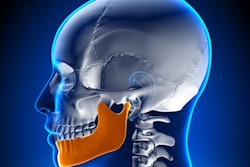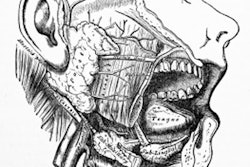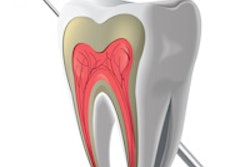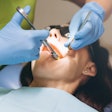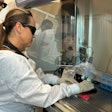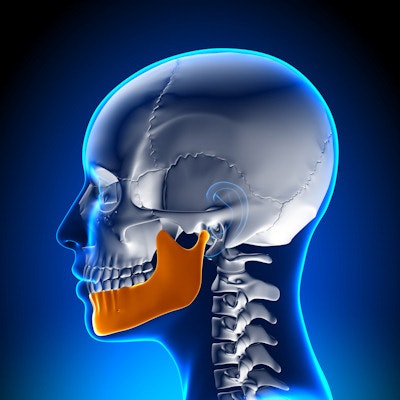
Collaboration among dental professionals and pharmacists can help prevent medication-related osteonecrosis of the jaw (MRONJ), a rare condition that typically occurs following tooth extractions, according to an article published in the Pharmaceutical Journal on August 20.
By working together, dentists and pharmacists can reach more patients and better educate them about the risks and complications of this painful and difficult-to-treat condition. MRONJ can develop while patients are taking medications prescribed to treat cancer and osteoporosis, the authors noted.
They provided a background on the condition and outlined preventive strategies for healthcare professionals.
Medication-related osteonecrosis of the jaw is defined by the American Association of Oral and Maxillofacial Surgeons as exposed bone or bone in the maxillofacial region that can be probed through an intra- or extraoral fistula and has persisted for more than eight weeks in patients with a history of treatment with antiresorptive or antiangiogenic drugs. In addition, the patient does not have a history of radiation therapy to the jaw or no obvious metastatic disease to the jaws.
The condition causes significant pain and may require regular use of analgesics and antibiotics or invasive surgery. It also may cause social anxiety because the condition can loosen teeth, making it awkward to eat, the authors wrote.
Bisphosphonates have been linked to osteonecrosis of the jaw for more than 15 years. Although these medications remain the most commonly implicated drugs, several antiresorptive and antiangiogenic drugs prescribed to manage osteoporosis and Paget's disease or to treat cancer have been attributed to this severe bone damage in the jaw.
Clinical guidelines suggest that any oral disease be eliminated or stabilized before any prescriptions are taken because of limited treatment options and the possibility of significant morbidity, the authors noted.
They also recommended the following:
- Pharmacists should be aware of the medications implicated in MRONJ and be trained to give preventative advice.
- Patients should be advised to inform their dentists that they take any implicated medicines.
- Dental teams should have access to summary care records.
- When patients are prescribed implicated medicines for the first time, they should be referred to a dentist.
- This advice should be supported by an interprofessional team when these pharmaceuticals are prescribed and also at subsequent resupplies of the medicine.
A multidisciplinary team approach is likely the best way to prevent MRONJ, according to the authors. Further research and exploration will help better define the roles of the multidisciplinary team in creating prevention strategies, they added.
"Improved communication and interprofessional collaboration between medical and dental colleagues could improve patient outcomes," wrote the authors, led by Andrew Sturrock, a clinical research pharmacist at Coquet Medical Group in Northumberland and a pharmacy lecturer at the University of Sunderland in the U.K.




